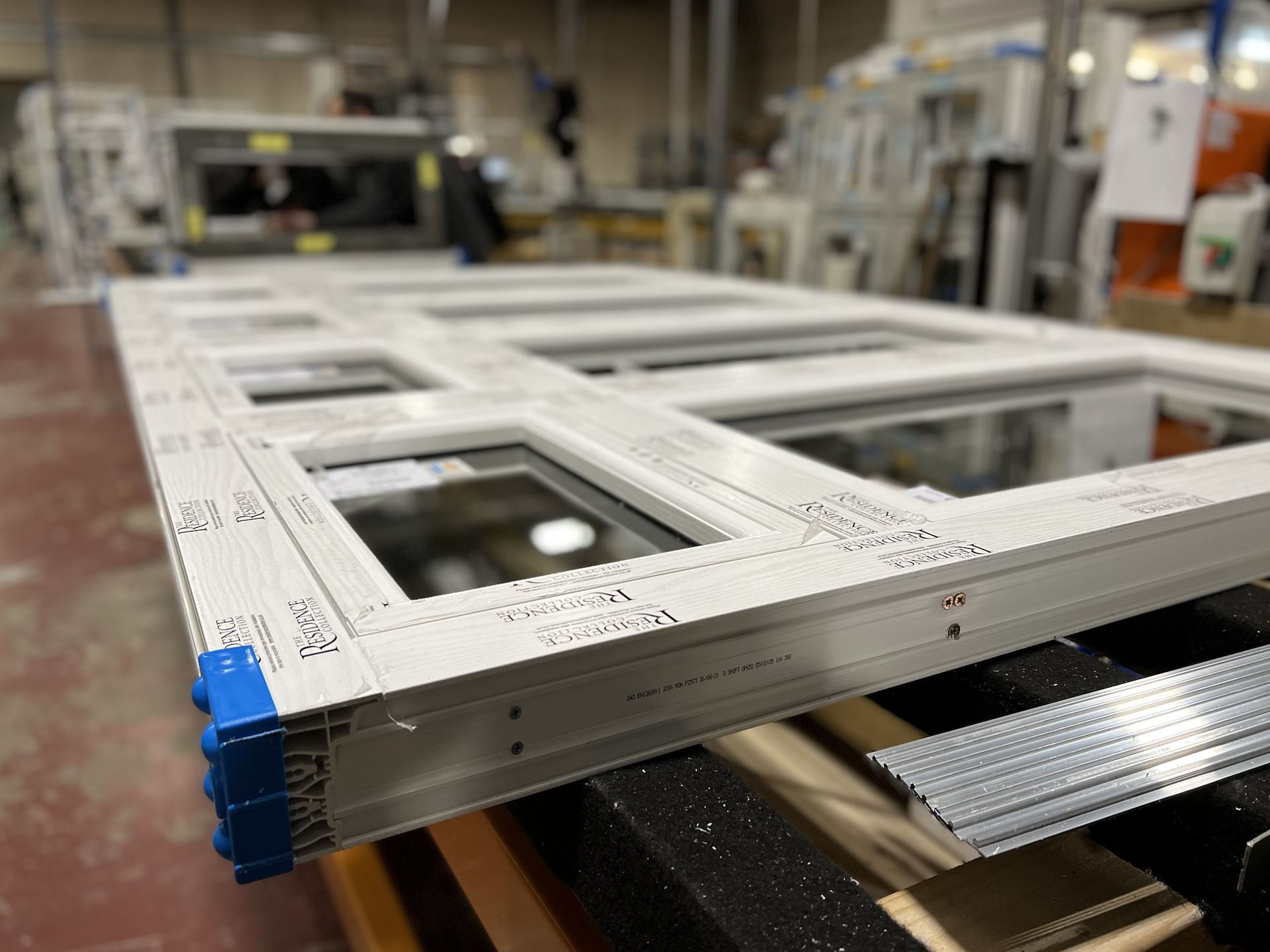Fix for the skills crisis?

HWL Windows has adopted a proactive approach to the skills crisis through a highly successful college outreach programme. We talk to operations director, Phil Gray, to find out more.
UK manufacturers are facing the largest shortage of skilled workers since 1989 (PWC).
The sector struggles with image, a perception that wages are low and working conditions are poor. And that’s the manufacturing sector in general. The window and door industry can add in the ‘stigma’ attached to double-glazing.
“It’s not sexy, it’s not an industry that you leave school thinking that you want to work in,” says Phil Gray, operations director, HWL Windows. “But it’s the industry that I’ve worked in all my life, it’s an industry that I’m incredibly passionate about and which has given me a good standard of living. It has a lot to offer.”
The window and door industry’s inability to attract skilled workers is documented. Building our Skills, fenestration apprenticeships – there have been a wide range of initiatives to promote development and learning within the sector, in addition to career opportunities to those outside it. These have, however, met with limited success.
For its part, HWL has adopted a more direct route, partnering with local colleges to promote the opportunities that a career in the window and door industry can offer, but also providing the crucial connection with training providers to develop skills and formalise qualifications.
“It started out when we got involved in the Leeds Manufacturing Festival. There’s a very proud tradition of manufacturing and engineering in the North West,” continues Phil.
“The challenge is that a lot of the kids who are studying engineering don’t consider a career in manufacturing. They go to university and their career path takes a different direction. It certainly doesn’t bring them to the window and door industry.
“But we want to change that.”
Through its support for the festival, HWL formed new partnerships with Leeds City College (LCC) and University Technical College Leeds (UTC).
“It was clear at the Leeds Manufacturing Festival that sometimes these kids didn’t really want to be there, they were pushed forward dragging their heels to ask questions about manufacturing, but they weren’t engaged,” Phil continues.
“But what came out of that and our relationship with UTC were these ‘manufacturing treks’. The kids come out for a half day or day and spend time with us in a manufacturing environment. They get the opportunity to see how it works and to ask questions out in a working environment.
“That’s been massively successful,” he continues. “They’re engaged, they’re asking lots of questions, they want to connect with you on social media after they’ve been. It’s like a switch goes on.”
HWL is now taking that a step further, converting its factory mezzanine floor to create a manufacturing school where students from UTC can learn about the principles of everything from product design to manufacture and installation.
“We’re setting them projects. Simple things but they get an opportunity to design and make things. We’re doing it out of scrap but that doesn’t matter, it’s about the hands-on experience. Showing them what goes into product”, enthuses Phil.
“What they fabricate is then going back to the UTC facility where they are being taught about how to install it.”
Phil says that while aluminium had a presence, PVC-U manufacture up to that point, had fallen off the agenda.
“They do a bit of vacuum forming, digital printing, but working with plastic wasn’t there. If you look at the number of PVC-U fabricators in the West Yorkshire area it’s a huge industry but there was no tie-in,” he explains.
While this partnership approach has given HWL access to an enthusiastic and engineering focussed student body, it has also partnered with a training provider to deliver a fenestration apprenticeship and has already appointed its first apprentice to the scheme. This will start at Level 2 and run to a Level 4 diploma.
“They’ve come to us through UTC and what we’ve been doing locally. He’s going to go through an apprenticeship in aluminium. The level of engagement and interest we’re getting is on a different level,” Phil says.
“When you’re going through a recruiter, you’re scraping the bottom of the barrel, irrespective of the promise of a ‘miracle cure’, recruiters are targeting in exactly the same way and as a result will represent the same candidate, who more often than not has only tenuously linked skills to your role.
“You don’t get people who want to do the role,” he adds. “They last five minutes and you’ve got the ridiculously high recruitment cost in your business for very little return.
“With what we’re doing now, we’re getting people with an interest in engineering but who might not have otherwise considered manufacturing.
“They’re coming to us and they already know a little bit about processing and manufacture but the biggest thing is they have a positive attitude towards learning,” says Phil. “They might be 16 but they’re more mature, responsible, and motivated than a lot of the supposed ‘adults’ that we were getting in.”
This injection of young blood into an industry where business leaders are often in their 50s and 60s is, according to Phil, critical to effective succession planning.
“We’re here for the long term. We need to be bringing in young people as part of our succession planning process,” Phil says.
“If we can show them how to build windows, get them out onto the factory floor, we’re bringing the future leaders of our business into our industry.”
